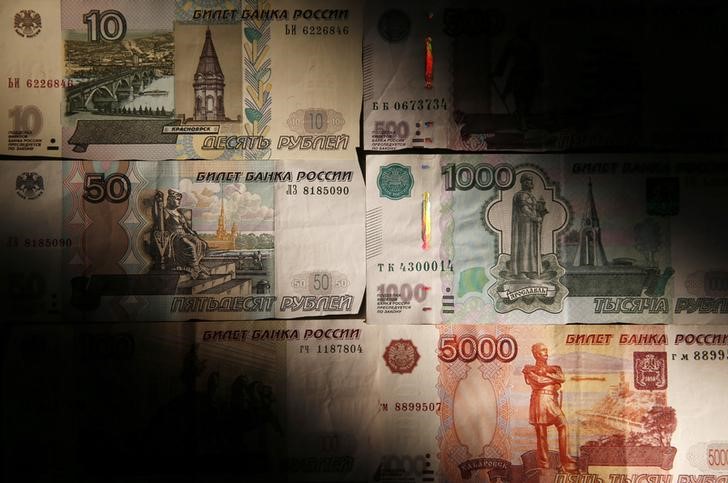 © Reuters. FILE PHOTO: A collection of Bitcoin (virtual currency) tokens are displayed in this picture illustration
© Reuters. FILE PHOTO: A collection of Bitcoin (virtual currency) tokens are displayed in this picture illustrationMANILA (Reuters) – The Philippines’ Securities and Exchange Commission said on Monday it is crafting rules to regulate cryptocurrency transactions to protect investors and reduce the risk of fraud.
The regulation, which will cover issuance and registration of cryptocurrencies, is expected to be finalised this year, said Emilio Aquino, SEC commissioner in charge of enforcement and investor protection.
“We need to act because initial coin offerings (ICOs) are sprouting especially in 2017. We want to come up with our own set of regulations,” Aquino told a news conference. “You have to be extra careful how investors in this new space are protected.”
Authorities around the world, particularly in Asia, have attempted to rein in the global boom in trading bitcoin and other cryptocurrencies – a form of digital money created and maintained by its users.
Chinese authorities have banned initial coin offerings and shut down local trading platforms, while South Korea – where speculation on cryptocurrencies is also rife – is working on plans to ban virtual coin exchanges.
The regulation on ICOs will include guidelines on cybersecurity of cryptocurrency markets, eligibility of issuers including the officials and technology utilized, and financial literacy of investors, Aquino said.
The corporate regulator has yet to approve any public sale of cryptocurrencies and is investigating unlicensed sellers.
“Unfortunately, there have been a lot of cases where ICO promoters vanish into thin air. We don’t want that to happen here,” Aquino said.
Hackers last week stole $530 million worth of digital money from Tokyo-based cryptocurrency exchange Coincheck Inc in one of the biggest-ever thefts of digital money.
Fusion Media or anyone involved with Fusion Media will not accept any liability for loss or damage as a result of reliance on the information including data, quotes, charts and buy/sell signals contained within this website. Please be fully informed regarding the risks and costs associated with trading the financial markets, it is one of the riskiest investment forms possible.
Source: Investing.com





























